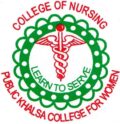Sylabus
The syllabus for a nursing course typically covers a broad range of subjects designed to equip students with the knowledge and skills necessary for a career in nursing. Here’s a general overview of what you might find in a nursing course syllabus:
Introduction to Nursing: This section typically provides an overview of the nursing profession, its history, ethics, and legal aspects.
Anatomy and Physiology: Understanding the structure and function of the human body is essential for nurses. This section covers topics such as the skeletal, muscular, circulatory, respiratory, digestive, nervous, and endocrine systems.
Health Assessment: Students learn how to conduct comprehensive health assessments, including physical examinations, patient histories, and vital sign measurements.
Fundamentals of Nursing Practice: This section covers the basic nursing skills and procedures, such as medication administration, wound care, infection control, and patient hygiene.
Medical-Surgical Nursing: This segment delves into the care of patients with various medical conditions and surgical interventions. Topics may include cardiovascular, respiratory, gastrointestinal, renal, and neurological disorders.
Pharmacology: Students learn about the principles of pharmacology, including drug classifications, actions, side effects, and administration routes.
Maternal and Child Health Nursing: This part focuses on the care of women during pregnancy, childbirth, and postpartum, as well as the health of newborns and children.
Mental Health Nursing: Understanding mental health disorders, therapeutic communication techniques, and psychosocial interventions is crucial for nurses caring for patients with mental health issues.
Community Health Nursing: This section emphasizes health promotion, disease prevention, and the role of nurses in community settings such as clinics, schools, and home health care.
Leadership and Management in Nursing: Students learn about leadership styles, organizational behavior, healthcare policies, and quality improvement initiatives.
Ethical and Legal Issues in Nursing: This part explores the ethical dilemmas and legal responsibilities faced by nurses in clinical practice.
Clinical Practicum: In addition to classroom instruction, nursing programs typically include hands-on clinical experiences in hospitals, clinics, and other healthcare settings, where students apply their knowledge under the supervision of licensed nurses.
This syllabus outline provides a comprehensive framework for nursing education, but specific courses and their content may vary depending on the program and the level of study (e.g., associate degree, bachelor’s degree, or graduate-level nursing programs).
INS(English)
Powered By EmbedPress
INS(Hindi)
Powered By EmbedPress
